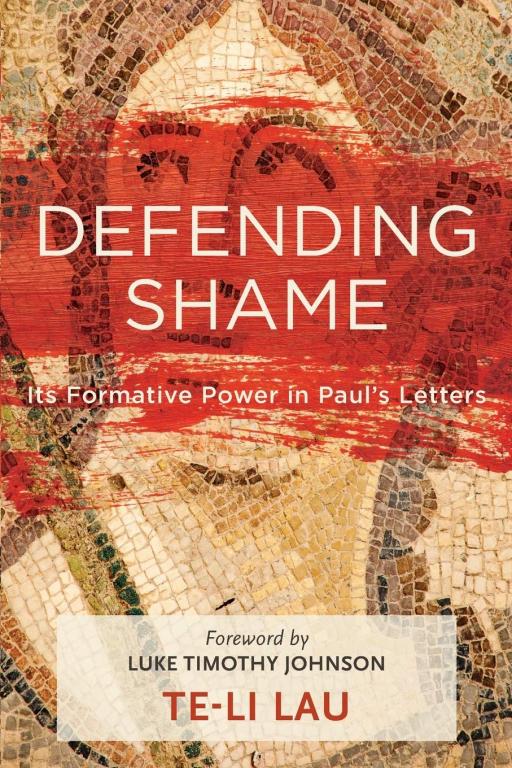New Book: Defending Shame
In this new book, Defending Shame, Dr. Te-Li Lau examines the socio-rhetorical function of shame language in Paul’s letters. It is exceptionally-well researched and a largely convincing argument for the positive moral function of his shame language.
“I think shame is lethal, I think shame is destructive.” ~Brene Brown
Dr. Te-Li Lau (Trinity Evangelical Divinity School) opens his book with this quote from Brown to show that American culture has a largely negative reaction to the word “shame.” Culture tells us people should not “shame” others, and no one should feel “shame.” Thus, shame language has become taboo. But for Christians especially, when we turn to the Bible, we see shame language regularly appear, not least in Paul.
Come to a sober and right mind, and sin no more; for some people have no knowledge of God. I say this to your shame. (1 Cor 15:34)
Was Paul wrong to “shame” the Corinthians? In comes Lau, Defending Shame, to note how honor-shame cultures function, and how shaming and feeling shame can be a positive thing if it leads to moral formation (“Christic formation” for the believer). Lau rightly notes that not all kinds of shaming are the same. No one should ever be shamed for their physical appearance, ancestry, zipcode, etc. But there can be value in calling people out on their inappropriate and harmful behavior. The definition of “shame” that Lau works with in his book is this: “the painful emotion that arises from an awareness that one has fallen short of some standard, ideal, or goal” (29). When it comes to Paul in particular, Lau explains: “[Paul] considers shame to be an emotion that one experiences when one is guilty of sin, for shame centers on a negative self-evaluation based on a certain set of ideals that a person holds. The ideals that a person cherishes may come from different courts of opinion. For Paul, the divine court of opinion is paramount” (172).
I think this long quote nicely sums up his argument in the book:
Paul uses shame as a pedagogical tool for Christic formation. He engages in honor and shame discourse to cultivate in his readers a dispositional sense of shame that is rooted in the mind of Christ. He also uses shaming rhetoric charged with prospective [in view of future choices] shame to discourage behavior that dishonors Christ and those for whom Christ died. When readers persist in sinful behavior, Paul resorts to retrospective shame [in view of past actions]. He rebukes his readers with the hope that the painful experiences of shame will move them to recognize the error of their ways…Paul shames his readers not to humiliate them but to prod them toward repentance. His shaming rhetoric is not destructive but redemptive, not disintegrative but reintegrative. (172)
This book is an important contribution to studies of Paul’s cultural world, his moral imagination, and his rhetoric. I think Lau has drawn attention to shame language and has successfully “defended” Paul’s use of it. Warmly recommended!













